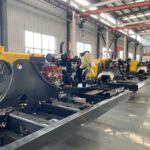Introduction
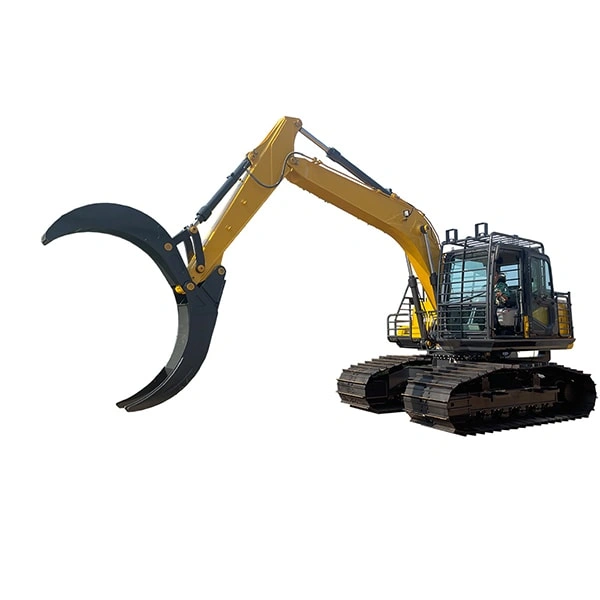
Purchasing heavy forestry excavation machinery like tracked feller bunchers or wheeled harvesters represents a major investment for logging contractors and timber companies. With new forestry excavators ranging from $300,000 to over $1 million depending on size and features, buying wholesale directly from suppliers can realize substantial cost savings compared to retail rates.
However, navigating wholesale forestry excavator deals involves some unique considerations around financing, custom machine specifications, supplier qualification, maintenance packages and more. Learning key factors in wholesale purchasing will enable securing optimal excavators ready to withstand years of grueling timber extraction work.
In this comprehensive guide, we will explore:
Table des matières
Gaining clarity around these essential wholesale details will help logging managers shop wholesale forestry excavators with confidence.
Bénéfices de Wholesale Buying
The main incentives purchasing forestry excavators directly from wholesale industrial equipment suppliers include:
Lower Cost – Wholesalers offer discounted rates by selling factory direct without middle-man markups, passing volume savings to buyers. Deals around 20% below retail are common.
Customization – Work directly with manufacturers to tailor machines to your timber extraction needs via purpose-built specifications.
Finance Support – Specialized forestry equipment financing programs provide attractive rates and flexible repayment plans to accommodate seasonal revenue streams.
Fleet Discounts – Building relationships with wholesale suppliers allows additional volume discounts when purchasing multiple units over time.
Capitalizing on these wholesale advantages cuts operational costs from the start.
Wholesale Pricing Factors
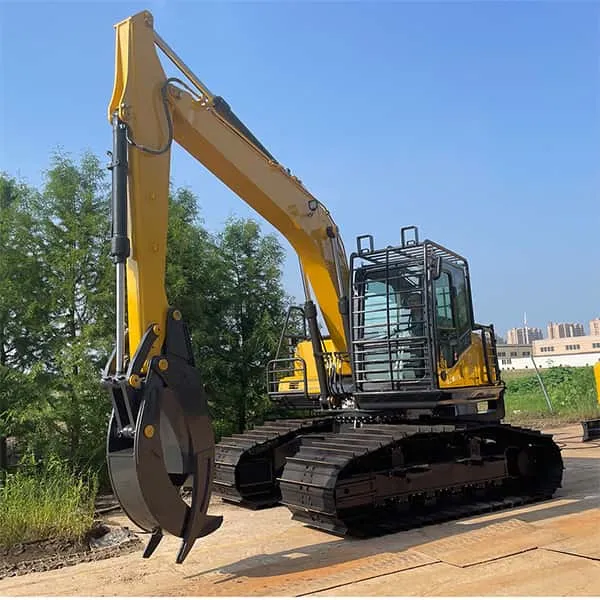
While many factors affect final pricing, common elements influencing wholesale forestry excavator costs include:
Base Model – The manufacturer, size class, engine power and drivetrain specs establish baseline pricing expecting between $300,000 to $800,000 for typical carriers.
Attachments & Options – Additional boom reach, winches, leveling blades, feller buncher heads or processing saws add expense.
Custom Specs – Upgrading engines, hydraulics or undercarriage durability to match region-specific logging conditions affects budgets.
Availability & Demand – Like any marketplaces, periods of low demand and oversupply allow buyers to negotiate steeper discounts if timing flexibility permits.
Understanding cost drivers enables realistic budgeting.
Custom Ordering Specifications
Collaborating with wholesale suppliers to customize key machine parameters ensures excavators match local conditions:
Table: Forestry Excavator Customization Options
| Composant | Sample Specs |
|---|---|
| Engine Power | Tier 4 emission standards (Horsepower and torque ratings) |
| Hydraulic System | Higher pressure lines (Auxiliary line capacities) |
| Boom Design | Reach distances (Lift capacity) |
| Châssis | Track shoe type (Length and gauge) |
| Guarding | Belly pans (Side screens) |
| Fluids | Bio-degradable (options) |
| Technologie | Telematics (Monitoring sensors) |
Clarifying must-have vs nice-to-have options keeps costs reasonable. Onsite demos help finalize details.
Financing Options
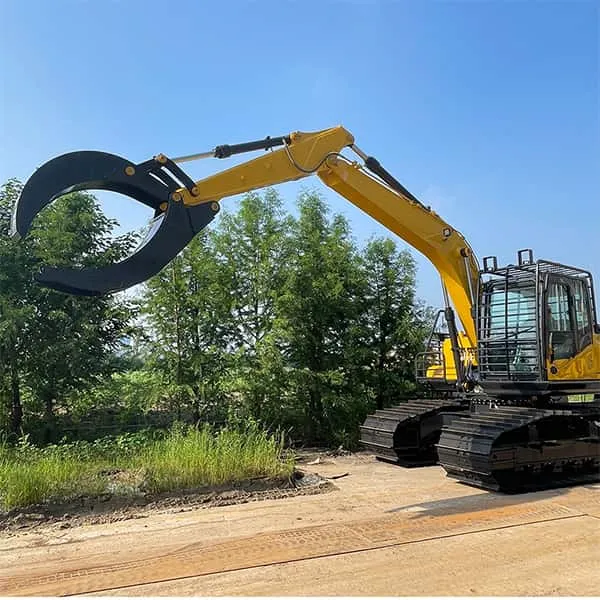
Unique forestry equipment financing partnerships offer wholesale buyers flexible payment plans:
Loans – Traditional lending models still apply, though maximum terms may be under 7 years for such asset-intensive collateral.
Leasing – Lease-to-own agreements allow lower initial payments while building ownership equity over 3-5 years.
Operating Leases – No ownership aspirations, just guaranteed equipment availability for a monthly fee during peak seasons.
Credit Lines – Revolving credit accounts with wholesale suppliers handle multiple purchases more easily.
Leveraging financing expertise from forestry wholesalers makes purchases viable.
Vetting Equipment Suppliers
Thorough vendor screening ensures reputable, established partners:
- Specialization – Seek wholesale suppliers focused on forestry equipment across sales, financing and support. Beware generalist vendors lacking category immersion.
- Industry Tenure – Look for decades of proximity to major forestry machinery manufacturers and customers. Deep expertise takes time to cultivate.
- Reputation – Ask trusted logging contacts about vendor reputations. Check sites like Better Business Bureau for telling complaints.
- Client Portfolio – Review existing buyer testimonials and portfolio parks to judge experience suiting your geography and logging disciplines.
Aligning with specialty vendors drives value.
Getting the Best Deals
Finally, employing these tactics can help negotiate the best possible wholesale forestry excavator discounts:
- Leverage Competition – Obtain bids from multiple vendor sources, playing them against each other.
- Buy Off-Season – Avoid peak summer and fall demand when possible.
- Seeking Volume Discounts – Whether buying multiple units now or pledging future purchases, probe for quantity savings.
- Ask About Used Equipment – If budgets are tight, inquire regarding refurbished trade-in inventory.
- Build Loyalty Discounts – Cultivating long-term supplier relationships earns rewards.
While securing rock-bottom pricing involves effort, the right excavator can quickly justify itself operationally. Target an ROI window around 18-24 months.
Conclusion:Wholesale Forestry Excavator
Navigating wholesale supply channels requires more legwork upfront assessing vendors and financing options, but the long-term discounts and customer service from specialty forestry equipment wholesalers make the effort worthwhile. Defining the right base specs, components and attachments ensures your customized excavators perform dependably year after year hauling timber from forests to sawmills.
FAQ
What are the top forestry excavator models and brands?
Major manufacturers include John Deere, Maxpower,CAT, Tigercat, Hitachi and Komatsu. Popular carrier models include the Maxpower150.9F, CAT 568 FM, John Deere 748L-II, Tigercat 845 and Hitachi 470. Regional brands also offer rugged solutions.
What is the average lifetime of modern forestry excavators?
Around 25,000 to 30,000 hours over 15-25 years is expected for major components if regular maintenance is performed when required. Engines and hydraulics may need rebuilds within this timeframe.
How long do forestry excavator tracks last?
Rubber or steel tracks experience wear depending on terrain conditions. On hard surfaces, tracks may last 2,000-4,000 hours. In rocky soils, tears necessitate replacements as soon as 200 hours. Carry extra chains.
When were excavators first used in logging?
Though primitive steam shovels worked in forests in the early 1900s, hydraulically powered boom arms and continuous rubber track mobility made excavators exceptionally well suited for forestry mulching, loading and processing logs by the 1980s as purpose-built logging carriers.






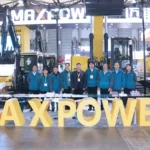
-150x150.webp)
